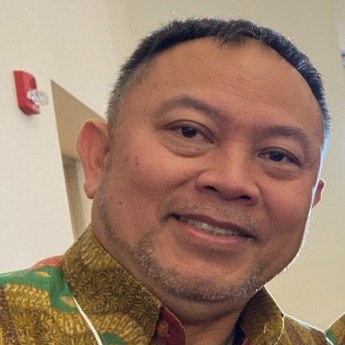As Mosaic Mennonite Conference commemorates the 500th Anniversary of Anabaptism in 2025, each month we will share a variety of Mosaic voices reflecting on the question, “What does Anabaptism mean to me?”

Submission from
Wendy Kwong, Souderton (PA) Mennonite
My husband and I were baptized in 1994 at a Chinese Mennonite church in Philadelphia, marking my conversion from a polytheist who revered ancestors and nature spirits to a monotheistic faith centered on Jesus. After immigrating from Hong Kong to the U.S., we settled in a suburban community with a strong Mennonite heritage, and our sons were educated at a Mennonite school. I was mentored by a Mennonite health care provider during my last school years. All these encounters shaped my spiritual formation.
Over the past three decades, I have encountered a wide range of sometimes fascinating comments on Mennonites from Christians and non-Christians: “I have never heard of Mennonites before.” “Are Mennonites the same as Mormons?” “Mennonites discourage street dancing.” “Mennonites don’t use cellphones,” and “Mennonites shouldn’t refuse military service.”
I have come to deeply appreciate the simple lifestyle, nonviolence, baptism by faith, caring for creation, and the mission of reconciliation of Mennonites. As a new believer, I struggled to practice peacemaking, but through prayer and reading Scripture, I received peace from the Lord and trusting in Him alone.
I am deeply grateful for the pastors and leaders in my congregation who have organized events to help us to deepen our root as part of Anabaptists during this year commemorating 500 years of Anabaptism. As I reflect on this legacy, I add to my personal Mennonite convictions: justice witnessing, intercultural humility, sacrificial love, courageous discipleship, and innovative pedagogy. I may not fully live out every tradition, yet I entrust the journey to the power of the Holy Spirit.

Submission from
Jacob Curtis, Co-Pastor of Ambler (PA) Mennonite
I’m a missionary kid. My Mennonite parents moved from the US to Ireland before I was born. So, growing up, Ireland was home. None of the other kids at school knew what Mennonites were. But I was proud to be one. It made me special. For me, Mennonites were the Christians who took Jesus seriously. We were the ones who actually tried to love our enemies, who’d die for them rather than kill them. The Mennonites I knew were all missionaries who’d left their homes to follow Jesus into the unknown. I wanted to be like them when I grew up.
When I left Ireland at 18, I moved to Goshen, Indiana, to go to college. There, I met more Mennonites. And I learned that being Mennonite meant different things to different people. Sometimes, it was reduced to taking one side or the other in the American culture wars. Mennonites in conservative places could become obsessed with conservative family values. Mennonites in progressive places could talk a lot about social justice and not a lot about Jesus.
But there were Mennonites in both places who still believed that to be a Mennonite was to be something special. It was a way of being Christian that took Jesus seriously all the time, not just when he aligned with a political agenda. It didn’t mean trying to recruit Jesus onto our side. It meant being on Jesus’ side and following him all the way to the cross.

Submission from
Pastor Emmanuel Villatoro, Whitehall (PA) Mennonite
Anabaptismo, es un llamado a seguir a Jesús de forma auténtica, incluso 500 años después de su surgimiento donde el anabaptismo promovía la fe voluntaria, la comunidad fraternal y el rechazo a la violencia. Esos valores siguen vivos, especialmente entre nuestras comunidades que buscan una vida sencilla, pacífica y centrada en Cristo en medio de un mundo cada vez más complejo, materialista y acelerado.
Ser menonita en este tiempo moderno es vivir con una conciencia profunda de la justicia, la paz y el servicio al prójimo. La vida sencilla no significa necesariamente vivir sin tecnología, sino más bien usarla con propósito, priorizando relaciones humanas y valores espirituales. Anabaptismo significa elegir caminos que promuevan la humildad, la comunidad y la reconciliación en un mundo donde la individualidad y la autoafirmación dominan. El anabaptismo nos invita a vivir una fe activa y comunitaria, centrada en el amor de Cristo y en la construcción del Reino de Dios.
Anabaptism is a call to follow Jesus authentically, even 500 years after its emergence, when it promoted voluntary faith, fraternal community, and the rejection of violence. These values remain alive today, especially among our communities that seek a simple, peaceful, Christ-centered life amid an increasingly complex, materialistic, and fast-paced world.
To be Mennonite in this modern age is to live with a deep awareness of justice, peace, and service to others. A simple life doesn’t necessarily mean living without technology, but rather using it purposefully, prioritizing human relationships and spiritual values. Anabaptism means choosing paths that promote humility, community, and reconciliation in a world where individuality and self-assertion prevail. Anabaptism invites us to live an active, communal faith centered on the love of Christ and the building of God’s Kingdom.
Mosaic values two-way communication and encourages our constituents to respond with feedback, questions, or encouragement. To share your thoughts or send a message to the author(s), contact us at communication@mosaicmennonites.org.



